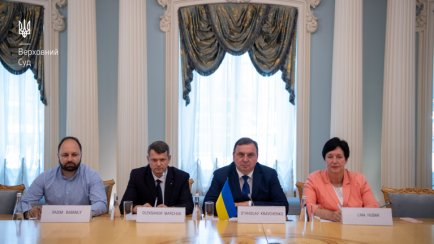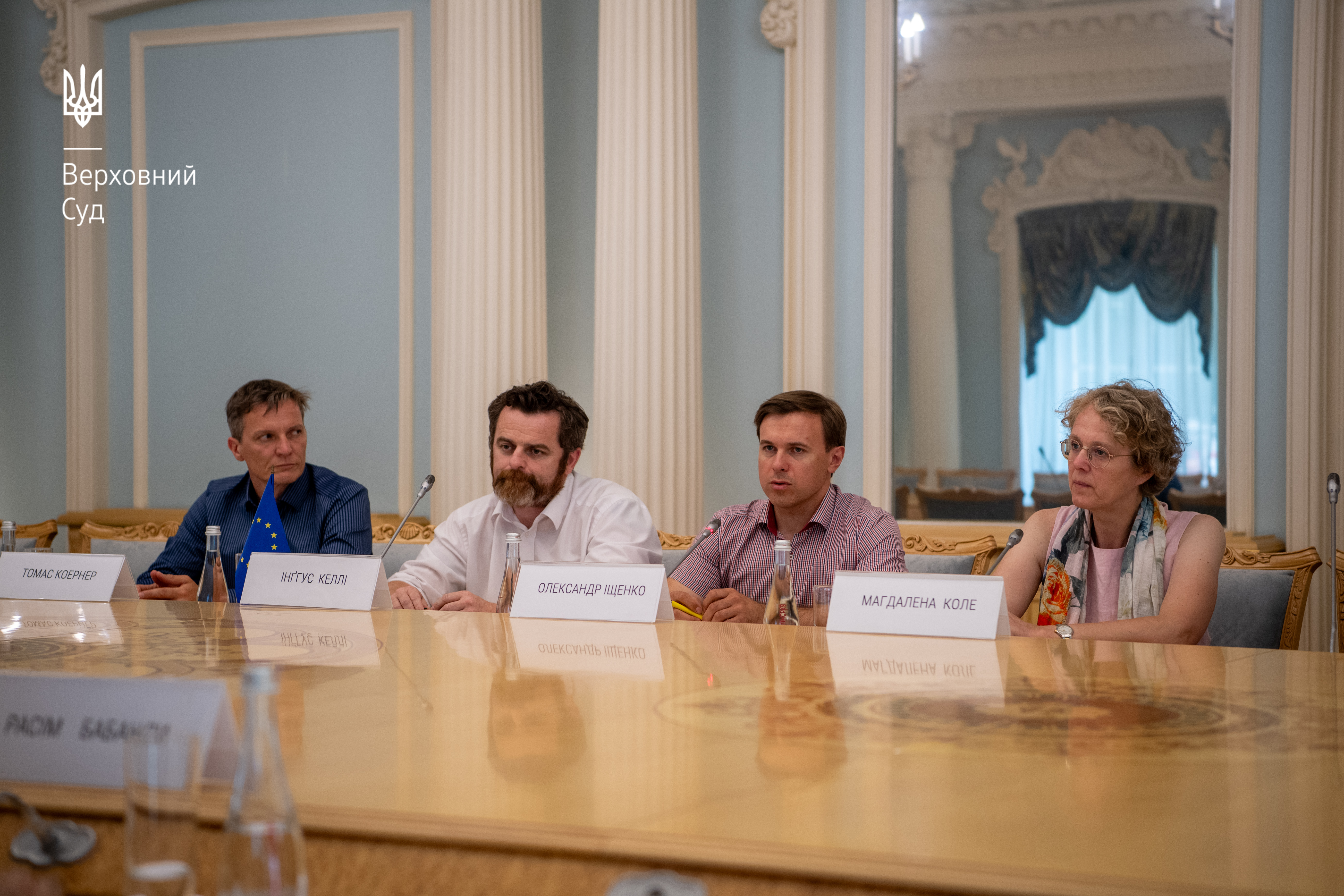Contact center of the Ukrainian Judiciary 044 207-35-46

Ukraine is currently in the process of negotiating its accession to the European Union. Our country still has a number of commitments to fulfil, which will ensure the successful completion of the European integration process. The national judicial system is committed to delivering justice in line with high international standards of judicial proceedings, and the support of international partners is important in this regard.
This thesis was expressed by Supreme Court President Stanislav Kravchenko during a working meeting with representatives of the European Union Advisory Mission to Ukraine.
"We are pleased to welcome the recent decision of the Council of Ministers of the European Union of 14 May 2024, according to which EUAM Ukraine started its work on a new three-year mandate on 1 June 2024. This mandate provides for enhanced support to Ukraine in the area of European integration reforms and overcoming military challenges. We also value our previous joint achievements. In particular, as part of the ongoing cooperation between the Supreme Court and EUAM on reforming Ukraine's civilian security sector, a series of meetings with experts and representatives of the Mission, as well as a number of training and study visits, took place in 2023-2024," said Stanislav Kravchenko.
According to him, the support of EUAM is extremely important for the Ukrainian judiciary, in particular in terms of security sector reforms that will facilitate Ukraine's accession to the EU.
The President of the Supreme Court also noted that in the context of Russia's full-scale war against Ukraine, the most difficulty is faced in organising the work of courts in frontline areas due to security risks. The general problem for courts of all instances and jurisdictions is the lack of staff.
Regarding criminal jurisdiction, Stanislav Kravchenko said that in war crimes proceedings, the efforts of investigating judges are primarily aimed at ensuring the formation of an evidence base, determining the amount of damage, and identifying perpetrators. "In this regard, the positions of international experts are very important for us, including those on the assessment of electronic evidence and the determination of the criteria for the admissibility of cases under the in absentia procedure, i.e. in the absence of the accused," explained SC President.

Aonghus Kelly, Head of the International Crimes Legal Unit at EUAM, stressed that in line with its enhanced mandate, the Mission will focus on cooperation with the Ukrainian judiciary, particularly in the context of combating international crimes.
Thomas Koerner, EUAM Senior Adviser on International Crimes Prosecutions, assured that the Mission is looking forward to starting a new chapter of cooperation with the Supreme Court to support justice in Ukraine. He noted that Ukrainian judges are quite familiar with the national legal framework, international approaches and the ECHR case law on in absentia proceedings. However, the problem is that judges need to combine the provisions of the national Ukrainian substantive and procedural legislation with the rules of international law, which sometimes differ.
EUAM Senior Adviser on International Crimes Prosecutions Magdalena Cole presented proposals for further cooperation between the Mission and the Ukrainian judiciary. It was proposed to hold a roundtable discussion on strengthening institutional capacity to prosecute international crimes and to organise a study visit of Ukrainian judges to The Hague to gain practical skills in prosecuting international crimes.
During the meeting, Oleksandr Marchuk, the President of the Criminal Cassation Court of the Supreme Court, drew special attention to the sufficiency of the assessment of evidence obtained from open sources (OSINT method) and electronic evidence. "In some court decisions, judges already refer to such evidence. However, most judges have a question about how much trust can be placed in this evidence, given the mechanisms of its formation and receipt. This suggests that judges need to be trained to understand open-source evidence and to assess electronic evidence in general," he added.
At the end of the discussion, Thomas Koerner expressed his admiration for the fact that the Ukrainian judiciary is functioning in extremely difficult wartime conditions. He also emphasised that the international community is aware of the difficulties caused by the fact that Ukrainian judges have to apply peacetime legislation under martial law.
The meeting was also attended by Oleksandr Ishchenko, Legal Adviser of the International Crimes Component, Rasim Babanly, First Deputy Chief of Staff of the Supreme Court, and Lina Hubar, Head of the Division for International Cooperation of the Supreme Court.